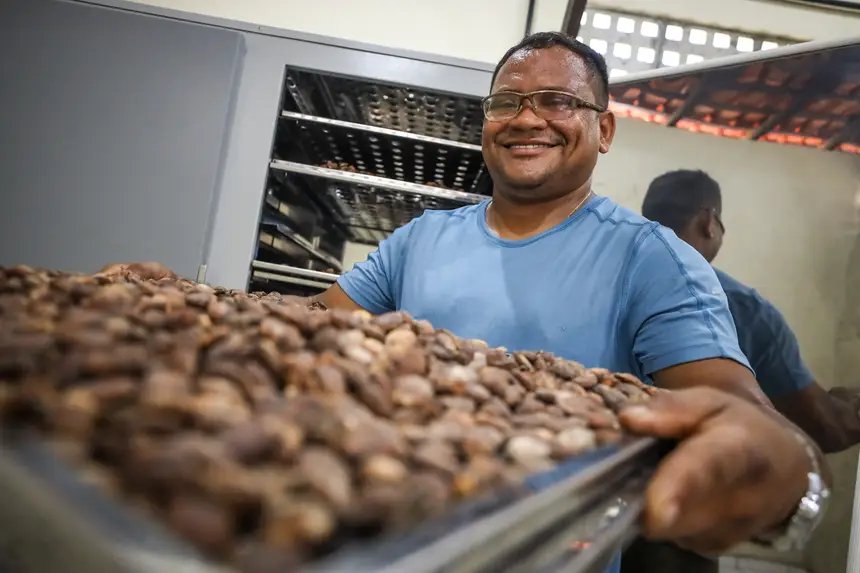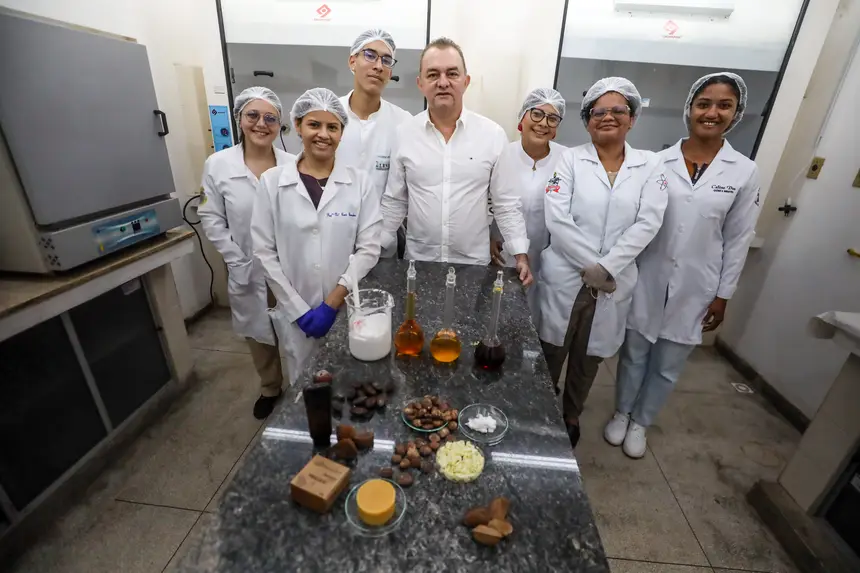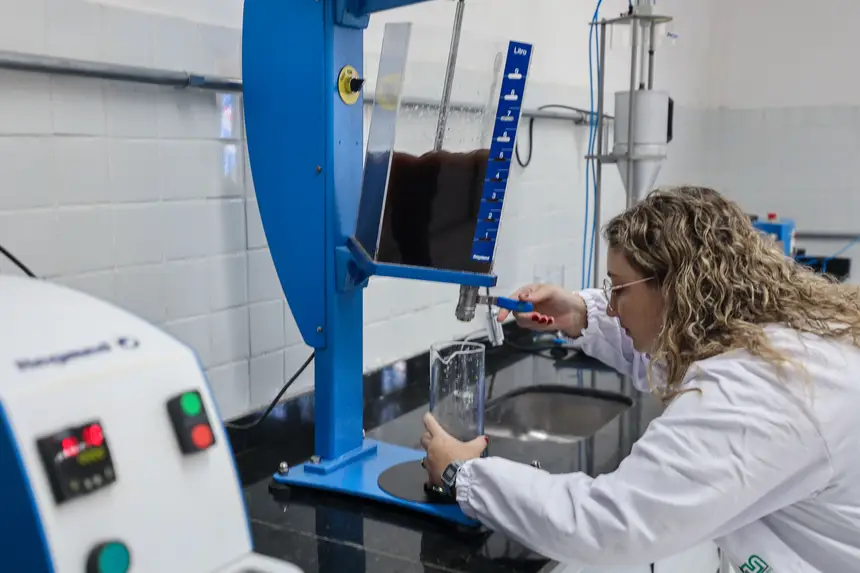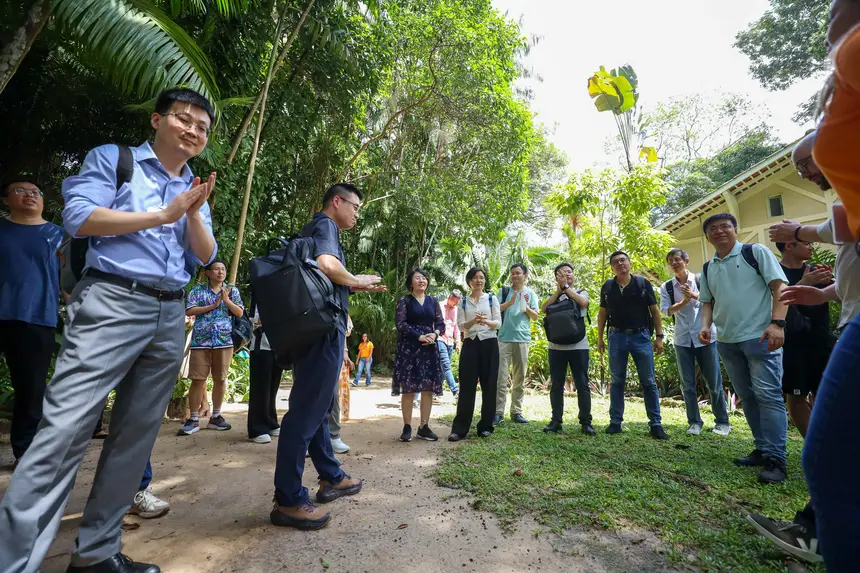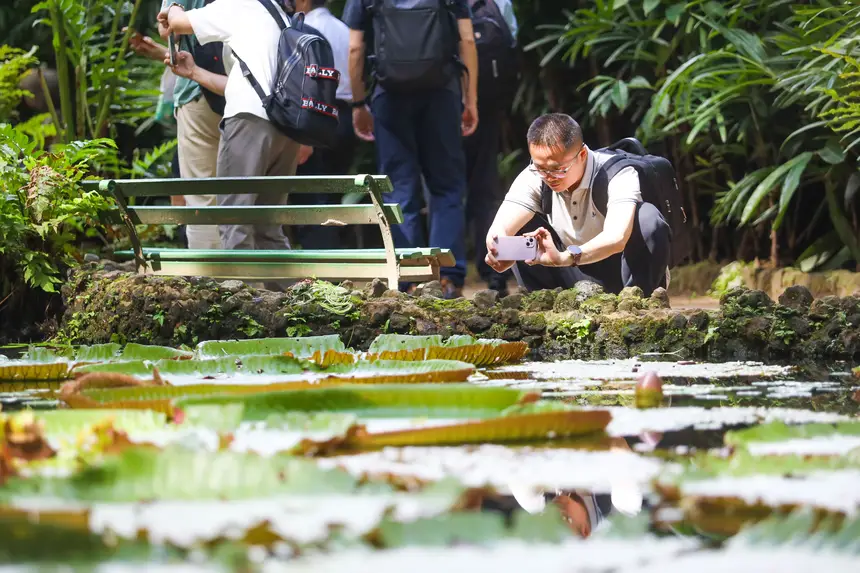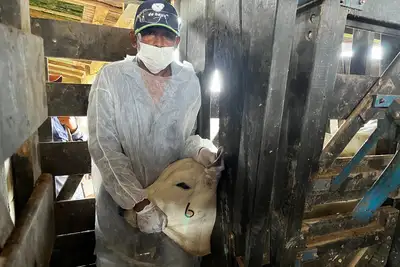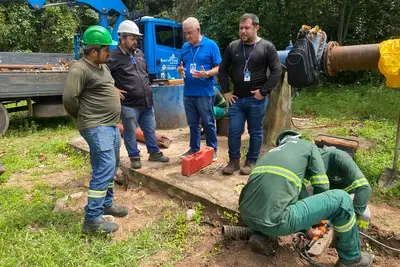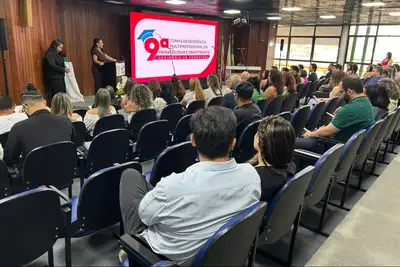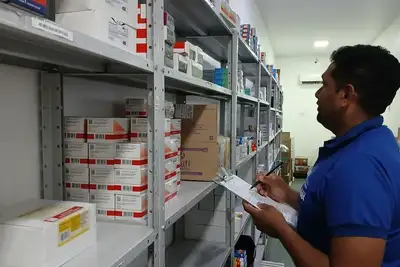Research and innovation drive sustainable development in Pará
Investments and new international partnerships reinforce the role of Fapespa in the field of Amazonian science, with public policies and researcher training
On World Science and Technology Day, celebrated on October 16, the Amazon Foundation for Support of Studies and Research (Fapespa) highlights the advances made in 2025 in strengthening research, innovation, and scientific production in Pará. The institution has expanded its activities with new national and international partnerships, encouraging human resource training and actions aimed at integrating science and public policies.
Among the highlighted initiatives this year is the strengthening of international scientific cooperation actions. On the last day 9, Fapespa held a workshop on the Horizon Europe Program, the largest research funding program of the European Union. The event, held at the State University of Pará (Uepa), presented Pará researchers with opportunities to participate in international calls for proposals and strategies for insertion into global research networks.
Fapespa expands partnerships with international institutions
This is a partnership with the British Council Brazil, from England, where Pará is the execution site of the Global Climate Skills – Seeds for transitions Program. This program aims to support projects for training young people on issues related to climate change, through the construction of scientific, technological, and innovative knowledge.
Fapespa also launched the Connect Amazônia 2025 call, in partnership with the University of Birmingham (United Kingdom), aimed at collaborative projects between researchers from Pará and England, specifically from UoB. The proposals prioritize strategic themes such as bioeconomy, climate change, biodiversity, and sustainable development.
The Foundation has expanded its presence in strategic forums for Science, Technology, and Innovation (CT&I). Among the highlights of 2025 is participation in the National Forum of Confap, held in Belo Horizonte (MG), which discussed mechanisms for cooperation between state foundations and federal agencies for research and innovation funding.
The institution also made its presence felt in Portugal, at the 34th Prospective Meeting, an international event that brought together scientists, managers, and experts to discuss various topics such as innovation, food security, biotechnology, and ecological transition, reinforcing the importance of Amazonian science in the global scenario.
Additionally, earlier this month, Fapespa participated for the first time in one of the largest international platforms dedicated to science, technology, and their implications for society, the Science and Technology for Society Forum (STS), held in Kyoto, Japan, represented by the Foundation's president, Marcel Botelho.
Science in the service of public policies and human resource training
Another priority axis of Fapespa is the use of science as a basis for public planning. Through the Coordination of Statistics and Information Dissemination, the Foundation published in 2025 a novelty, the Quarterly GDP, which now presents Pará's GDP data more swiftly, a statistical study that was previously published every two years.
The Foundation also continues to disseminate publications, such as the Statistical Yearbook of Pará, titled "Pará in Numbers," and the "Indicator Radar." These tools gather and analyze population, economic, and social data, supporting the formulation of public policies.
Atyliana Dias, director of the Statistics area, notes that "the availability of updated indicators strengthens the capacity of state and municipal managers to plan actions based on evidence, ensuring greater efficiency and transparency."
Guarantee of calls for proposals and scholarships
Fapespa is also continuing to invest in researcher training and the consolidation of regional research groups. In 2025, the institution maintained scholarship calls at various levels, from scientific initiation to doctoral programs, and expanded partnerships with CNPq (National Council for Scientific and Technological Development), Capes (Coordination for the Improvement of Higher Education Personnel), and Finep (Funding Agency for Studies and Projects) for co-financing programs aimed at postgraduate studies and technological innovation.
In recent years, the Foundation has stood out for its commitment to financing projects that address environmental, social, and economic issues in the region, aiming for sustainable development. The new partnerships with academic, scientific, and various other institutions expand the impact of research, favoring interdisciplinary collaboration and prioritizing interest in investing in science. These investments reinforce the Foundation's commitment to support the interiorization of science, value local talents, and boost Pará's insertion into national and international research networks.
The Bolsa-Pará Program has been consolidating as a mechanism for supporting and promoting human resource training, with scientific bases from undergraduate to postgraduate levels. Through this program, Fapespa currently maintains over 1,500 active scholarships in the modalities of Scientific Initiation, for regular Undergraduate courses and the Forma-Pará Program, Master's and Doctorate in all ICTs based in the State, ensuring a presence in over 80 municipalities.
"This ensures that human resource training is not limited to academic knowledge but also reaches the formation of scientific, technological, and innovative competencies," evaluates Fapespa's Scientific Director, Deyvison Medrado.
As a state funding agency, Fapespa has been operationalizing the Centelha and Tecnova Programs, which aim to support development and innovation in Pará companies. With these initiatives, Fapespa has already supported 69 innovative companies from 2022 to today, for their training, structuring, business model expansion, and innovation.
"It is worth noting that at least 39 of these develop products from Pará's bioeconomy. By the end of this year, new companies will be selected for support from Fapespa and Finep, through the Tecnova III Program, increasing the number of companies encouraged towards technological, bioeconomic, and innovative development," informs Deyvison Medrado.
Another highlighted action is the Amazônia +10 Initiative, which brings together 25 state foundations for Research Support in Brazil. This year, the initiative began to promote new projects through a coalition of national and international partners. Within this group, Fapespa remains the Foundation with the largest number of approved projects, reinforcing the strength of Pará's scientific community.
New calls for proposals and opportunities
For the coming months, Fapespa is preparing new funding calls aimed at innovation and sustainability. Actions to stimulate the capture of external resources and the internationalization of emerging researchers are also being planned.
According to the institution's presidency, the goals for 2026 include increasing the number of international partnerships, expanding the participation of Pará institutions in competitive calls for proposals, and strengthening the integration between science and regional development. With these actions, the Foundation consolidates itself as a reference for encouraging research and innovation in Pará and in the Amazon, supporting researchers spread throughout the State.
"Science is an essential tool for guiding public policies and promoting sustainable development in Pará. Our commitment is to strengthen the research and innovation ecosystem, expanding partnerships and opportunities so that the knowledge produced in the Amazon has a real impact on society," emphasizes Marcel Botelho.
Fapespa increases investments and consolidates the Pará Bioeconomy Network
The Amazon Foundation for Support of Studies and Research has also been reinforcing its strategic role in promoting science and innovation aimed at sustainability and bioeconomy in Pará.
In 2023, the institution allocated R$ 11.3 million to 42 research projects aligned with the State Bioeconomy Plan (PlanBio), involving 192 researchers from different areas. The result exceeded the initial expectations of the call, which anticipated only ten selected projects. Today, Fapespa executes 91 projects within the Bioeconomy Plan. This represents an investment of R$ 15.6 million over the last three years.
Additionally, Fapespa participates in the Centelha Program, with investments aimed at startups and impact businesses, some of which are focused on sustainable solutions and bionegotiations. Support for development and industrialization through the Tecnova III Program is responsible for a budget availability of R$ 12.6 million for the coming years.
Foundation contributes to scientific infrastructure
The Amazon Foundation for Support of Studies and Research also supports Pará's scientific infrastructure, such as the Laboratory of Biosolutions and Bioplastics of the Amazon (Laba), based at the Federal University of Pará (UFPA), which investigates new materials and technological alternatives for the sustainable development of the region.
With the advancement of bioeconomy as a strategic development axis, Fapespa created the Pará Network of Regional Accounts and Bioeconomy, in partnership with UFPA, the Federal University of Western Pará (Ufopa), and the Federal University of Southern and Southeastern Pará (Unifesspa).
The network aims to map and measure the economic dimension of bioeconomy in Pará, building regional indicators that allow estimating the sector's contribution to GDP and sustainable development. The methodologies are aligned with parameters from IBGE (Brazilian Institute of Geography and Statistics) and the UN (United Nations), strengthening the database on Amazonian production chains, such as those of açaí, nuts, and vegetable oils.
Investments in production chains
In August 2025, for example, the III Seminar of the Pará Network of Regional Accounts and Bioeconomy brought together researchers, public managers, and representatives of local communities to discuss strategies and consolidate the advancement of actions in the Pará territory.
A study by WRI Brazil estimates that strengthening 13 bioeconomy production chains could add R$ 816 million to Pará's GDP, generate 6,600 jobs, and increase tax revenue by R$ 44 million, based on investments of around R$ 720 million.
The numbers reinforce Pará's potential to become a national and international reference in bioeconomy, integrating science, conservation, and development. In this context, Fapespa's investments and the consolidation of the Pará Bioeconomy Network gain even more relevance as a basis for a model of sustainable growth in the Amazon.



